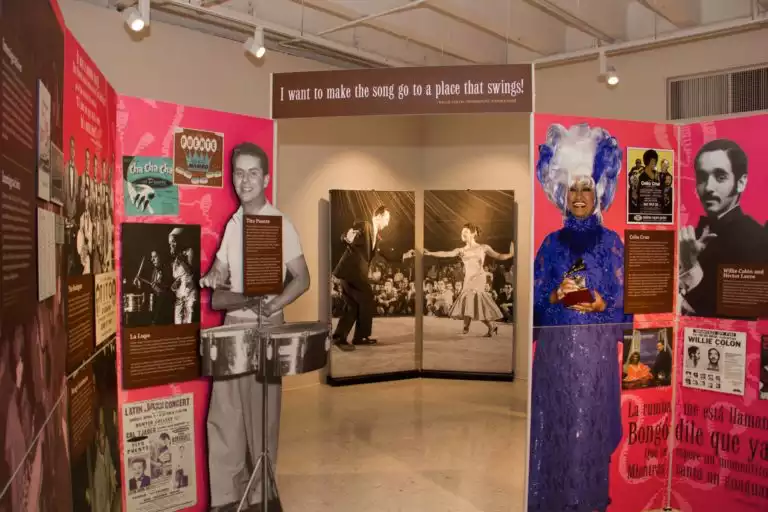
National Hispanic Heritage Month (NHHM) begins on Sept. 15 and ends on Oct. 15. This month offers an opportunity to explore the stories and perspectives of those who identify as members of the Hispanic and Latinx community. Princeton Public Library aims to include such topics in programming and content throughout the year, and this month serves as a chance to focus our efforts.
NHHM began in 1968 with a Hispanic Heritage Week. President Lyndon B. Johnson designated the week in response to efforts by legislators amid the increased focus on representation precipitated by the Civil Rights Movement. Decades later, President Ronald Reagan, again building upon the efforts of legislators, transitioned the week to the present-day monthlong period. The start date of Sept. 15 was selected for its historical significance to multiple Latin American countries, as several celebrate their independence days on Sept. 15. Mexico celebrates its independence on Sept. 16, while Chile observes on Sept. 18. As this variation indicates, NHHM highlights a broad and diverse group of people, including those with ancestry linked to Spain, Mexico, the Caribbean, and Central and South America.
A note on terminology: both Hispanic and Latina/o/x are widely used terms, with differing opinions about their meaning and interchangeability. While the month is officially known as National Hispanic Heritage Month, the library frequently uses both Hispanic and Latinx to stay current with national conversations about language. As always with terminology of this nature, it is recommended to defer to the preferences of the person or people who are members of a given community.
If you would like to view this guide in another language, please use the drop-down menu at the top left corner of this page.
Programs | Learn | Educator Resources
Programs at the Library and Beyond
The New Jersey State Library is kicking off NHHM with a virtual author talk on Sept. 15 exploring the memoir “The Unspoken Gift: How an Immigrant Cuban Child fulfilled his American Dream.” The book is written by Aldo Martinez, who came to America as a child as part of Operation Pedro Pan, which moved 14,000 children to the U.S. in the wake of the Cuban Revolution. Click here to register.
A new art exhibition, “Salvadoran Art: A Father and Son Exhibit,” will open at the library on Sept. 17. Come to the library for an open house with the artists on Oct. 6. Click here to learn more.

On Sept. 22, join us for an interdisciplinary hybrid program held in observance of National Hispanic Heritage Month. Christopher “Unpezverde” Núñez, a choreographer, dramaturg, educator and disability advocate, will speak about his experience as an undocumented Central American immigrant with moderator Marielys “Lely” Burgos Meléndez, advocate, artistic researcher, somatic educator, writer and audio describer. The discussion will explore the intersection of the politics of immigration, indigeneity, artistry, gender and disability. The speakers will also consider the role that disability and heritage play in the development of new aesthetics in art-making. Click here to learn more.
Join the library’s Virtual Story Room as staff celebrate and share books created by Hispanic and Latinx authors and illustrators.
You can also view a recording of the library’s 2020 program with Maria Hinojosa, Emmy Award-winning journalist, in conversation with Princeton University’s Khristina Gonzalez and Elizabeth Cohen. For 30 years, Hinojosa has reported on stories and communities in America that often go ignored. “Once I Was You: A Memoir of Love and Hate in a Torn America” explores immigration in America through the lens of the author’s family’s experiences and decades of reporting that paints a portrait of a country in crisis. Bestselling author Julia Alvarez has called her “one of the most important, respected, and beloved cultural leaders in the Latinx community.”
Learn about Hispanic and Latinx History and Experiences
See below for lists of nonfiction and fiction geared toward adult readers and centered around Hispanic and Latinx experiences and perspectives.
For teens, kids, and the youngest readers, below are lists of books that highlight varied narratives and perspectives of those in the Hispanic and Latinx community.
Online resources include:
- Materials from the National Archives and Records Administration
- Resources from the Library of Congress
- Information from the National Park Service
- Collections and activities from Google Arts and Culture
Resources for Educators
See the materials below for potential starting points for engaging learners. You’ll find lesson plans, digital tools, curricula, and more.
- Teacher resources from federal humanities agencies
- Resources from the Smithsonian Institution’s National Museum of the American Latino
- Teacher’s guide from Salud America!
- Resources from Ebsco
- Lessons and activities from the National Education Association
- Resources from Teach for America
- Ideas for teachers from the Anti-Defamation League
- Resources from Facing Today, the blog of Facing History and Ourselves

Humanities@PPL promotes critical thinking, civic engagement, and empathetic understanding through community collaboration and dynamic programs and resources. The initiative is made possible with support from the National Endowment for the Humanities.
by Madeleine Rosenberg
